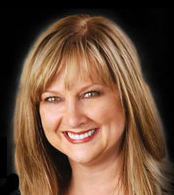Recently I had the great, if somewhat terrifying, pleasure to stand before an assembly at Hope Elementary in Hope, Indiana, and speak to the students in grades 2-6 about "Reading, Writing and Life."
It was a lot to cover in 30 minutes. I've been doing those things (reading, writing and being alive) for a pretty long time and can talk about them until the cows come home. But given the risk of cutting into recess, I tried to keep it short.
I started with "Life." There are three keys in life, I said, that help to open all sorts of doors:
1. Be kind.
2. Be responsible.
3. Believe — in yourself, in the goodness of others, and most of all, in possibilities.
I told them I grew up telling stories to my brother, who was totally blind and insufferably stubborn, and who made me describe for him things he couldn't see.
I never dreamed, I said, that I'd grow up to earn my living as a writer. But apparently my brother dreamed it for me. And somehow that dream came true.
Next, I offered five "tips" that I've found helpful for reading and writing.
1. Learn the rules of writing (grammar, punctuation, spelling, etc.) and stick to them until you know them so very well you don't have to think about them and you can just have fun.
2. Write about what you know, the thing you can't get off your mind. If you want to write about something that you don't know much about, study it until you know it by heart. Then start writing and learn even more.
3. Write the way you talk, only better. Read your writing aloud. Does it sound like you? If not, rewrite it until it does. The unique part of writing is the voice with which it's written. Find your voice and use it to make your writing your own.
4. Read and write every day. Readers read. Writers write. Do both. Read your favorite authors. And write something just for fun every day.
Reading and writing will help you get to know yourself and the world around you. When my daughter was a little girl, she filled journals with her thoughts and feelings and hopes and dreams. Now, as a reading specialist teacher, she sometimes reads those journals to her students. And they love getting to know who she was at their age.
5. Write as if you're writing to someone who is blind — someone who has never seen, and never will see, the things you're writing about, unless you use words that can be understood, not just with the eyes, but with all the senses — hearing, taste, touch, smell, and most of all, with the heart.
Finally, I said, we read and we write to know and to be known. It works like this: You take thoughts and feelings from your mind and your heart and occasionally from your soul, and you fashion them into words.
That is called language.
You put the words on paper, or on a computer screen, using lines and circles, marks and symbols, until you trust them to carry your meaning.
That is called writing.
Then someone, who has never seen your face or heard your voice, will see your lines and circles and symbols and marks, and recognize them as words.
That is called reading.
Sometimes, like magic, the words hold the power to recreate the writer's thoughts and feelings in the mind and heart and maybe even in the soul of the reader.
That is called a miracle.
I believe in that miracle. I see it happen every day. You can see it, too. Just keep reading and writing and believing.
Miracles happen. Dreams come true. Every day. Everywhere. For everyone. And most surely in a place called Hope.
Comment by clicking here.
Award-winning essayist Sharon Randall's weekly column has an estimated readership of 6 million nationwide. Born and reared in the Blue Ridge Mountains of North and South Carolina, Randall grew up in Landrum, S.C., and has lived for 35 years in "California of All Places."



 Contact The Editor
Contact The Editor
 Articles By This Author
Articles By This Author